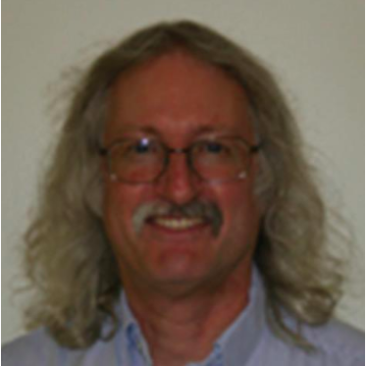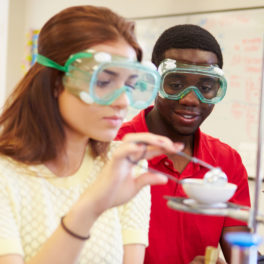Tell Us about Yourself
Works in the Chemistry Department at Marshall University
What AEOP program(s) did you participate in?
Words of Advice?
Read as much as you can. Find a mentor and find a person you can feel free to express your ideas to and whom you respect enough to accept their constructive criticism. They may be quite different from you, and balance you.
Considering the current sciences, where do you see the future direction headed?
Almost certainly the future is even more collaborative and multidisciplinary. Because energy use and planetary energy balance will increase in importance, there will be many opportunities for innovation in improving life while using less energy.
What got you interested in this field?
I became interested in chemistry at a very young age. There was a television show called “Mr. Wizard,” which introduced me to the wonderful changes one could affect through chemistry. The observable signs of chemical transformation, color changes, temperature changes and change in other properties continues to fascinate me. They still seem magical, although more comprehensible now.
What is the most beneficial/inspiring part of the mentor relationship?
Mentorship can be a long-term relationship. I think back to my earlier days and formative experiences and want to “pay forward” the great support I had at many points in my career. First we should encourage curiosity and creativity. The freedom to explore, to make decisions and to learn from errors and real, measurable results are among the gifts bestowed on me that I wish to share with others.
What sage advice would you give to a student just beginning to consider a career in science?
Find any opportunity to perform research which you can pour all of your intellect into. Find your passion and pursue it. Don’t fear your limitations, we all have them.
What is the most rewarding about your job?
The moment when you gain a new insight or when you are able to share in the moment when a student or co-worker has an insight. Even if the discovery has already been made by someone else before, it can serve as substantiation that you are thinking in a special way and the next insight may be a unique one among all humankind. In research you are often the first person in the world to actually observe a certain phenomenon or result. That’s pretty intellectually stimulating! Then of course you have to share it with friends worldwide through presentations and publications so that they can build on your work and stand on your shoulders to see more of the world.
Download/Print Version:


